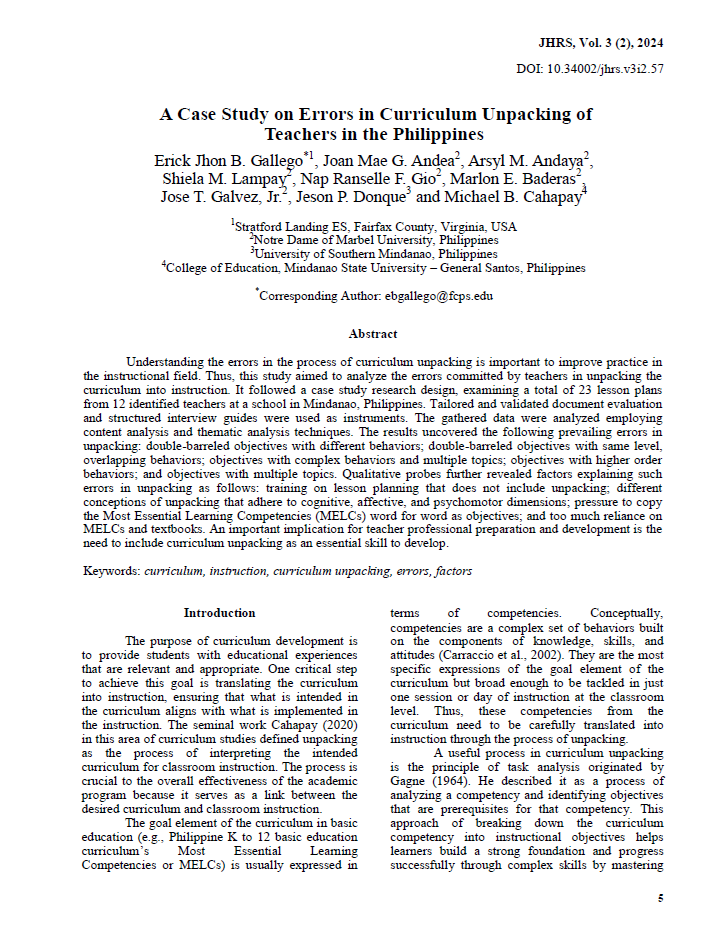A Case Study on Errors in Curriculum Unpacking of Teachers in the Philippines
Abstract
Understanding the errors in the process of curriculum unpacking is important to improve practice in the instructional field. Thus, this study aimed to analyze the errors committed by teachers in unpacking the curriculum into instruction. It followed a case study research design, examining a total of 23 lesson plans from 12 identified teachers at a school in Mindanao, Philippines. Tailored and validated document evaluation and structured interview guides were used as instruments. The gathered data were analyzed employing content analysis and thematic analysis techniques. The results uncovered the following prevailing errors in unpacking: double-barreled objectives with different behaviors; double-barreled objectives with same level, overlapping behaviors; objectives with complex behaviors and multiple topics; objectives with higher order behaviors; and objectives with multiple topics. Qualitative probes further revealed factors explaining such errors in unpacking as follows: training on lesson planning that does not include unpacking; different conceptions of unpacking that adhere to cognitive, affective, and psychomotor dimensions; pressure to copy the Most Essential Learning Competencies (MELCs) word for word as objectives; and too much reliance on MELCs and textbooks. An important implication for teacher professional preparation and development is the need to include curriculum unpacking as an essential skill to develop.

